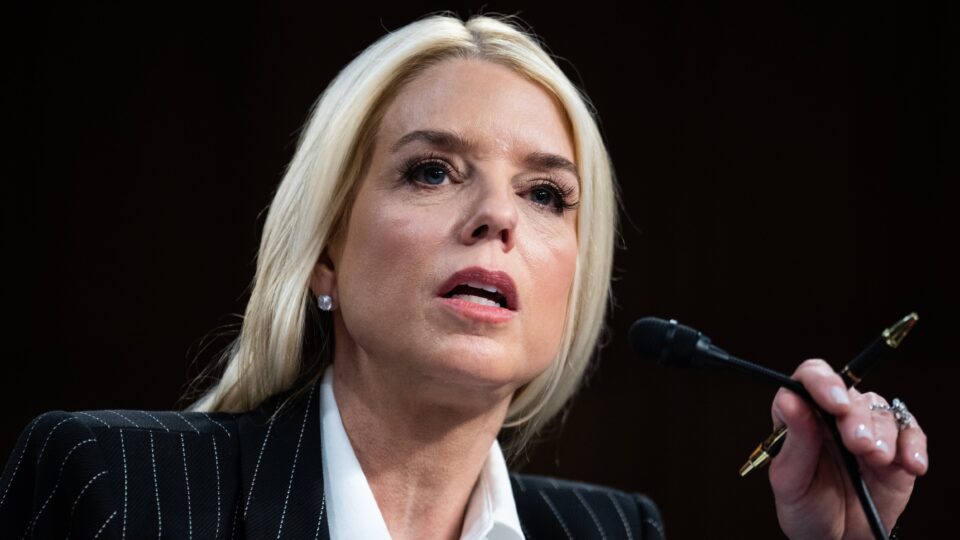
Attorney General Pam Bondi is reportedly considering doing away with a critical Justice Department safeguard designed to prevent politically motivated prosecutions of elected officials, according to multiple officials familiar with a proposal circulated last week.
The change would remove the requirement of the Justice Department’s Public Integrity Section (PIN), a Watergate-era department responsible for reviewing and approving prosecutions of public officials and signing off on federal prosecutors’ indictments of lawmakers. Instead, Trump-appointed U.S. attorneys would have the power to bring corruption charges without centralized oversight.
PIN also handles voting-related matters. In the case of a contested election, they would determine how the DOJ would intervene.
A DOJ spokesperson confirmed the proposal is under review but said that no final decision had been made, The Washington Post reports.
Critics say the change could open the floodgates to politically driven prosecutions during an already deeply polarized period in American history.
“The reason you have the section is exactly what this administration says they want, which is [to] stop politicization,” said former PIN attorney Dan Schwager. “The only way to ensure that public officials on both sides of the aisle are treated similarly is to have as much institutional knowledge and experience as possible.”
Since Trump took office, PIN has already been hollowed out, as have other DOJ offices. The 30 prosecutors working in the office at the end of the Biden administration have been cut to fewer than five. Several have resigned, been reassigned, or were fired after clashing with Bondi and other Trump appointees.
Trump appointees threatened mass firings earlier this year when PIN attorneys refused to sign off on dropping corruption charges against New York City Mayor Eric Adams. Veteran prosecutor Edward Sullivan eventually relented to prevent a purge, but he now heads a thoroughly reduced office.
Despite the attorney general still having final say over indictments, legal experts warn the proposed changes would diminish the institutional check that PIN provides.
Paul Butler, a Georgetown Law professor and former PIN lawyer, said “This is part of a shift in limiting the power of law enforcement experts in public corruption.”

